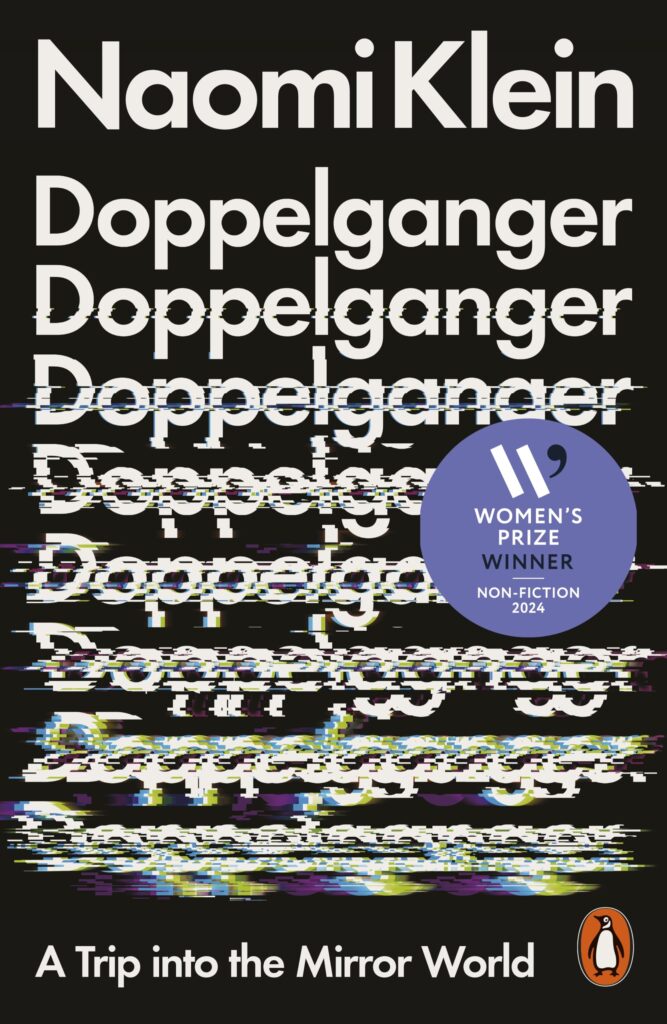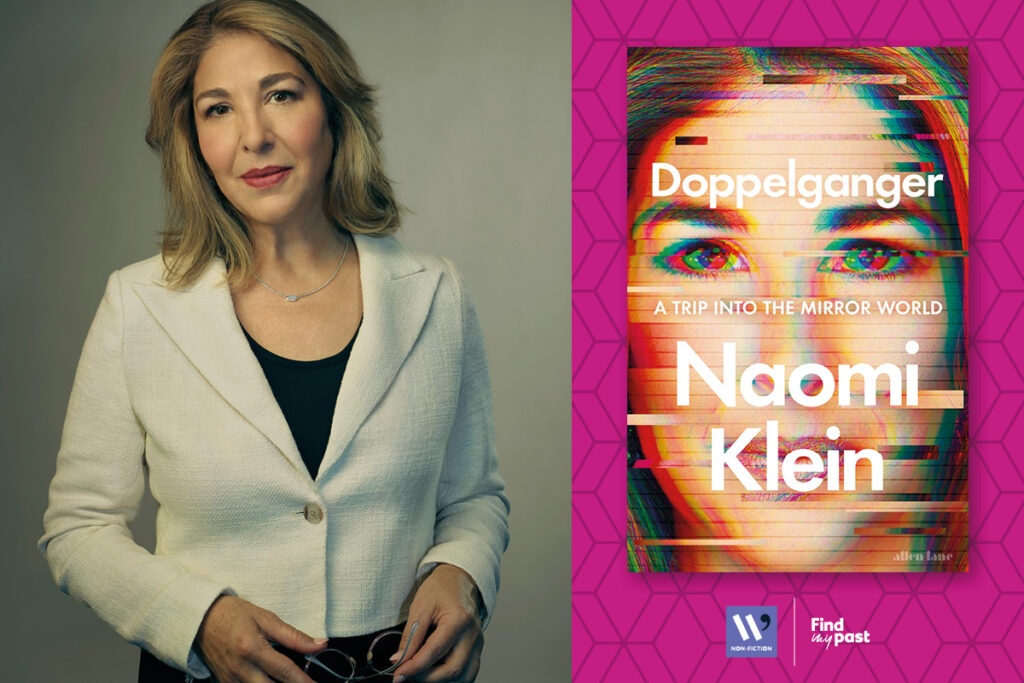Doppelganger: A Trip Into the Mirror World by Naomi Klein is for anyone who has lost hours down an internet rabbit hole, who wonders why our politics has become so fatally warped, and who wants a way out of our collective vertigo and back to fighting for what really matters.
Longlisted for the 2024 Women’s Prize for Non-Fiction, judge Anne Sebba said ‘Such a clever book because [Klein] takes what, on the face of it, is a simple idea of having a double, someone who is frequently thought of as her, but then expands this to construct a dark comedy of a rather terrifying mirror image world.’
To find out more about the book we spoke to Naomi about her writing, research and current reads.

Describe your book in one sentence as if you were telling a friend.
It uses the fact that I have doppelganger, someone who others constantly confuse me with, as a way to understand many different forms of cultural and political doubling and mirroring.
Did you have any revelation moments when writing your book? When the narrative and your objectives all fell into place?
I think it was when I realized that conspiracy theorists really were disaster profiteers, of the kind of wrote about in the Shock Doctrine many years ago. But instead of selling products or services at jacked up prices after disasters they were selling wild ideas about the world, at the height of the pandemic when so many of us were desperate for answers. That clicked a lot of things into place.
What is the one thing you’d like a reader to take away from reading your book?
The it’s not only our individual selves that can have a kind of evil twin. So can whole societies. That’s what fascism is, it’s the moment when a culture collectively tips into the worst version of itself. That moment is far too close for comfort and we can only avoid it by joining together.
Which other female non-fiction writers inspire you and why? Any particular title?
Always Rachel Carson and Silent Spring, for the mix of poetry, futurism and science. In Doppelganger, I draw on work about the doubled self by bell hooks, who wrote about not wanting her identity to overtake her work, and Barbara Ehrenreich, who wrote about the obsession with the idealized body as a kind of doubling. Both women died while I was writing the book so it is dedicated to them, along with other non-fiction heroes who passed in those years.
What is the best piece of writing advice you have ever received?
“If you go out on a limb, don’t saw it off” – my father, Michael Klein, a medical researcher.
What book is currently on your nightstand?
Multidirectional Memory: Remembering the Holocaust in the Age of Decolonization by Michael Rothberg. It engages with the literature of writers who put the Nazi genocide in the history of colonial genocides, including Hannah Arendt, Aimé Césaire, Charlotte Delbo, W.E.B. Du Bois and Marguerite Duras. It’s a heavy book but these are heavy times.








